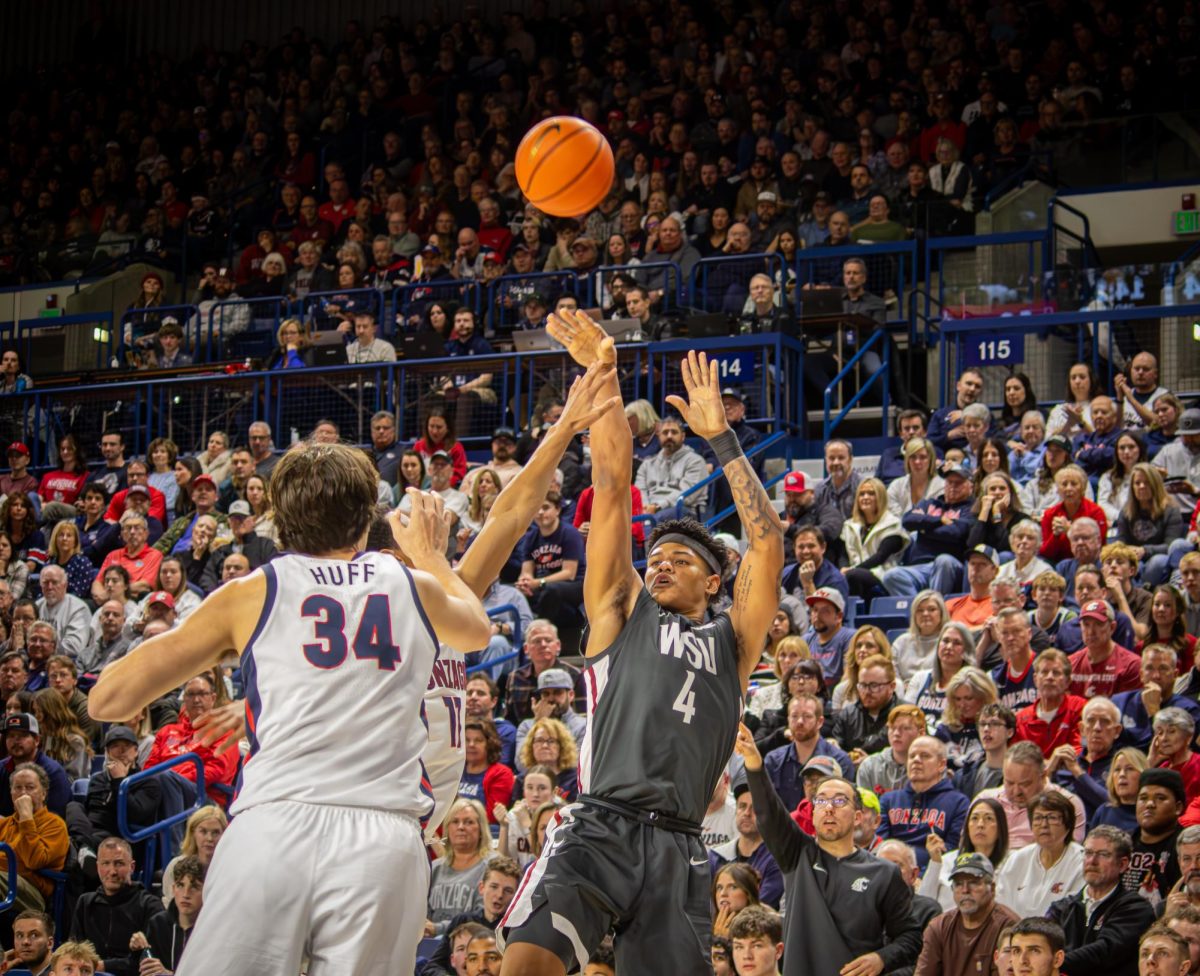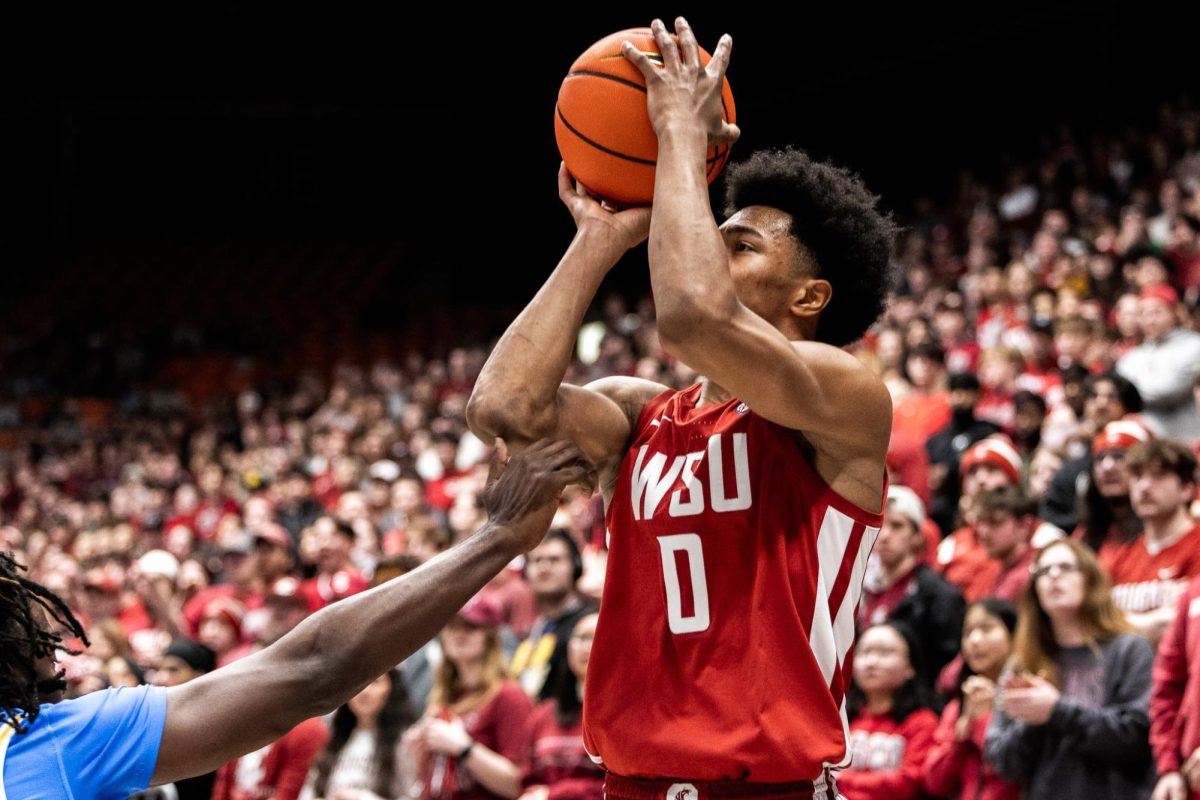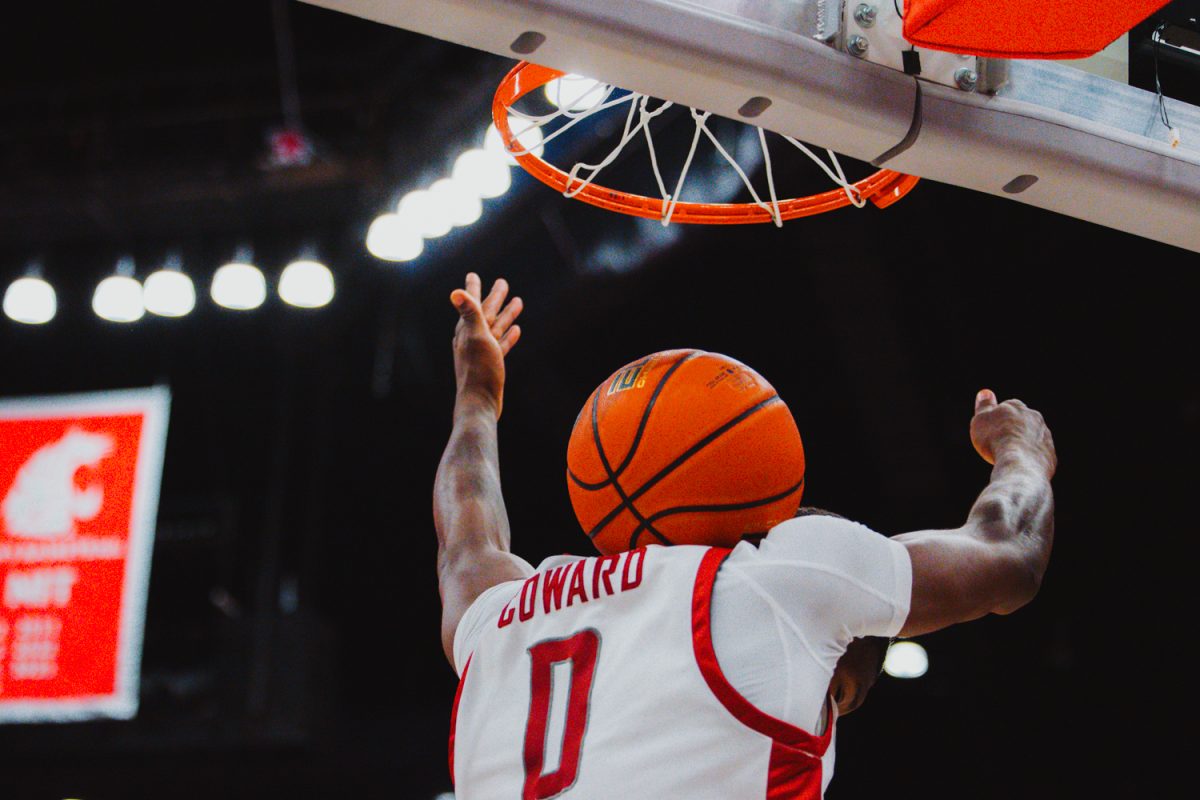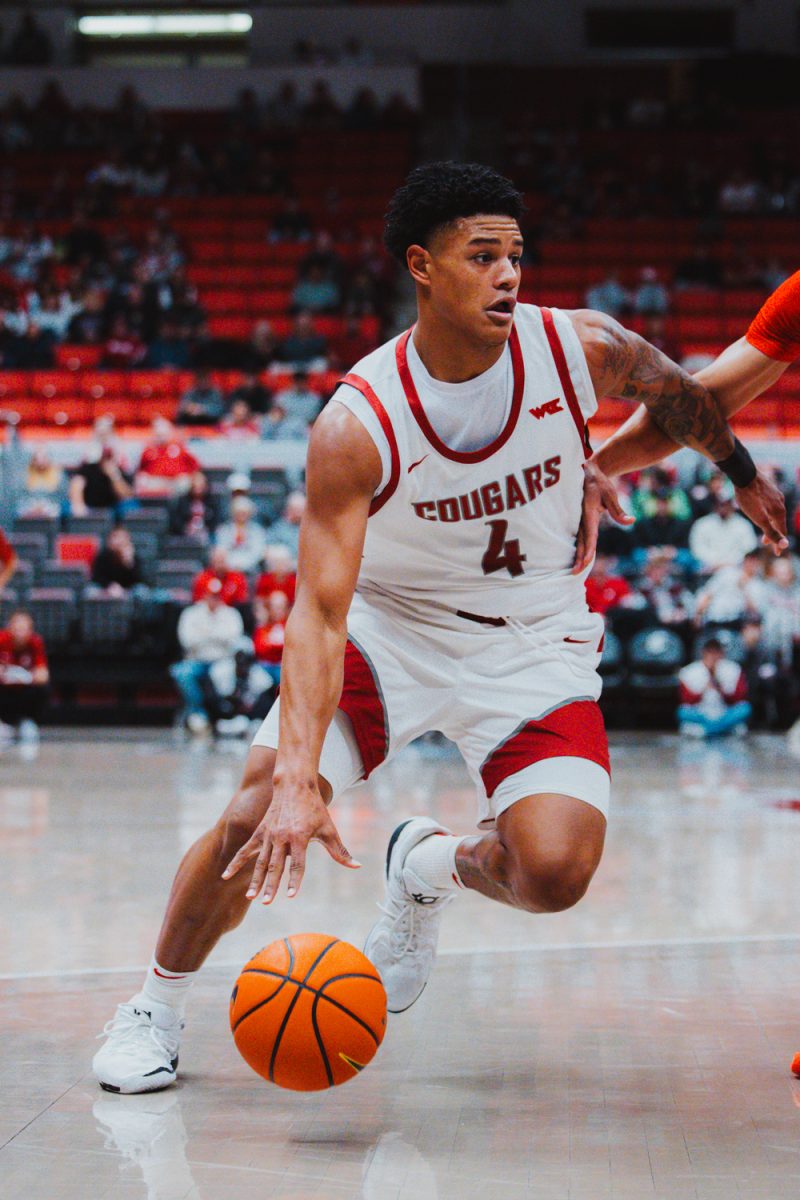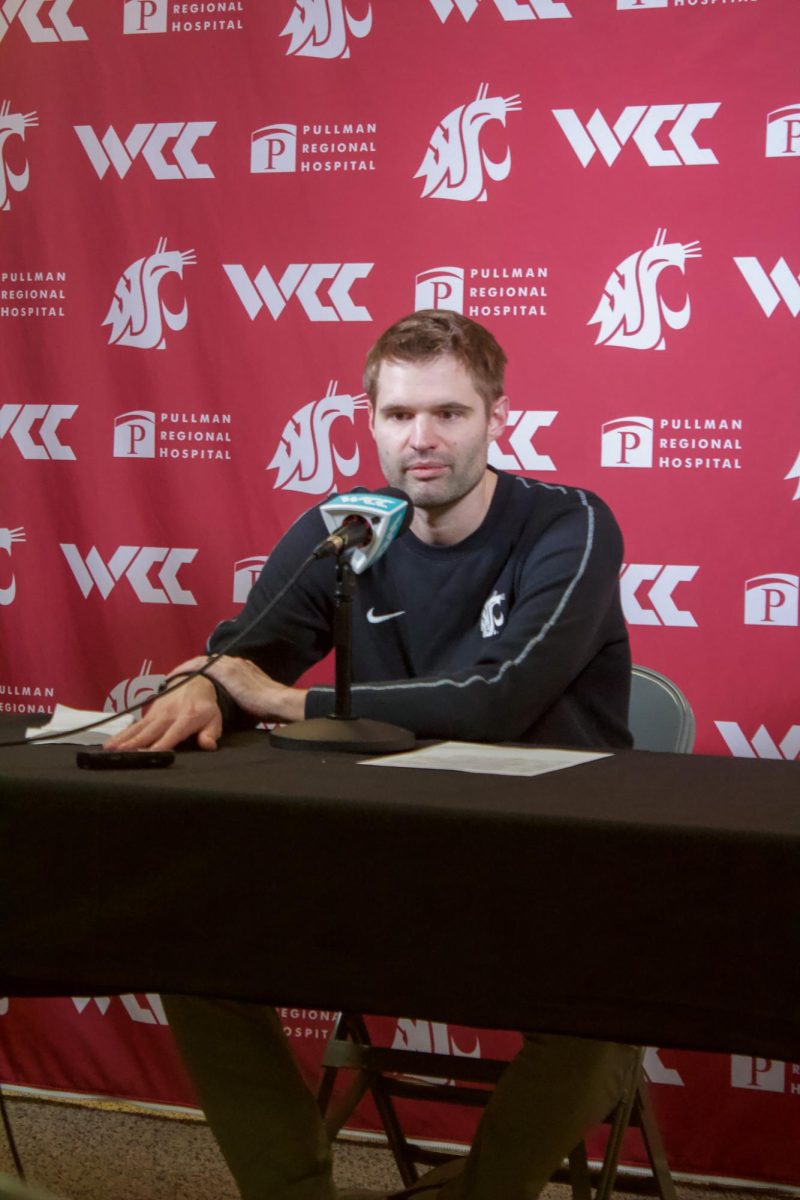It always felt as if the Cougars were walking on eggshells in terms of injuries. With Cedric Coward, Isaiah Watts, Rihard Vavers and Marcus Wilson all sidelined with injuries, WSU was probably lucky to have a 13-3 record in the first place. Last week, those injuries came back to bite them.
Losing at Gonzaga is not detrimental. The Bulldogs are perennial contenders, currently projected to be a three-seed in the NCAA Tournament and ranked No. 16 in the latest AP Poll. However, losing to Pacific last Thursday is a much bigger blotch on the resume. The Tigers had lost 21 straight West Coast Conference games.
The Cougars entered last week as a bubble team for the NCAA Tournament, with a 5-3 record against Quad 1 and 2 opponents and a 13-3 record overall. Despite four injuries, including two season-ending injuries to Coward and Wilson, Wazzu was finding ways to win. However, the writing was on the wall that things could get worse. WSU was leading the WCC in turnovers and were 10th place in turnover ratio. They also struggled with fouls, often times needing to rest starters for significant portions of the second half in order to prevent fouling out.
Everything seemed to boil up against Pacific. The Cougs were preparing for a marquee matchup against Gonzaga, trying to keep their eight healthy players rested and ready to go. Whether or not they took the Tigers for granted, the Cougs came out slow and never recovered against Pacific. They almost made a comeback, but ultimately lost in overtime.
“We can’t say the word ‘Gonzaga’ for the rest of the week until we play them,” said Nate Calmese before the Pacific game.
Yet the Cougs looked like a team that was not prepared to play the worst team in the WCC. Although the loss was close, it was an ugly one.
Perhaps things would have been different had Ethan Price not gone down with cramps midway through the second half. Price led the Cougs with 28 points against the Tigers, and was putting on a clinic. However, he missed the majority of overtime due to the cramps, and the Cougs probably could have used him, as they lost by one point on a buzzer-beating three.
The Pacific loss, being a Quad 4 loss at home, put a stain on the Cougs otherwise excellent resume, but the resume also took another hit this week.
Both Bradley and San Francisco, teams the Cougs beat at home, are no longer ranked in the top 75 of the NET rankings, meaning they are no longer considered Quad 2 wins. So in the span of a week, the Cougs went from 5-3 against Quad 1 & 2, to 3-4 against Quad 1 & 2.
USF (No. 77) and Bradley (No. 82) could still improve and help boost Wazzu’s resume, but at the moment, both teams are struggling. The Cougs still have four remaining Quad 1 matchups and three remaining Quad 2 matchups, but they can likely afford to lose only two or three of those games if they want a chance at the NCAA Tournament. The opportunity to improve the resume exists, but the path is not easy.
The loss at Gonzaga again saw the Cougs affected by injuries. Price looked sore after his cramps, and LeJuan Watts had to leave the game in the second half with a minor leg injury. The Cougs hung in with the Bulldogs in the first half, only down by three at the break. But the Bulldogs were deeper and faster, and they proved it in the second half.
“It slipped away from us early in the second half,” said Riley. “That’s what it’s gonna come down to…that fight for forty minutes I think was the difference, and they came out with a little more fire than us.”
Freshmen Kase Wynott, Tomas Thrastarson and Parker Gerrits are coming along fast, but they are still young and new to the program. Without Coward and Watts, the trio of freshmen have had to step into much larger roles than they were expected to play this year, and they are doing their best. However, they cannot be expected to give the same production of the older, more experienced players that they are replacing.
Turnovers were again a major factor in the Gonzaga loss. Gonzaga head coach Mark Few said after the game that the Bulldogs “turned defense into offense,” referencing the 20 points-off-turnovers that Wazzu allowed. They turned the ball over sixteen times.
However, Few also offered his thoughts on the strengths of WSU.
“They’re hard to guard,” said Few. “They’re big and they’re physical.”
The Cougs have plenty of strong suits, despite their setbacks. They lead the WCC in blocks, are second in both three-pointers made and three-point percentage, and are fourth in rebound margin. They have the second-best scoring offense in the WCC, even with the turnovers.
Wazzu has a pair of easier games ahead, playing at the University of San Diego and then coming home to host the University of Portland. Of course, the loss against Pacific should teach the Cougs not to take any opponent lightly, but those are games the Cougs should win. After that, they will have another tough week, going to Santa Clara (ranked No. 66 by the NET) and then hosting Saint Mary’s (ranked No. 34).
Without Isaiah Watts, the Cougars are weaker on offense and more susceptible to foul trouble. Watts gave Wazzu another scorer off the bench, something the team currently lacks. Until he returns, they may need to focus more on their defensive approach, limiting fouls and preventing their opponents from going on big runs.
Even if the Cougars are not able to sneak into the NCAA Tournament, that does not make the season a failure. WSU still has a shot at making the NIT and would be a high seed if they get in. It is still David Riley’s first year as head coach, and he has the team playing well despite missing two key pieces and two contributors off the bench. There is room for improvement, but there is no reason for panic.


